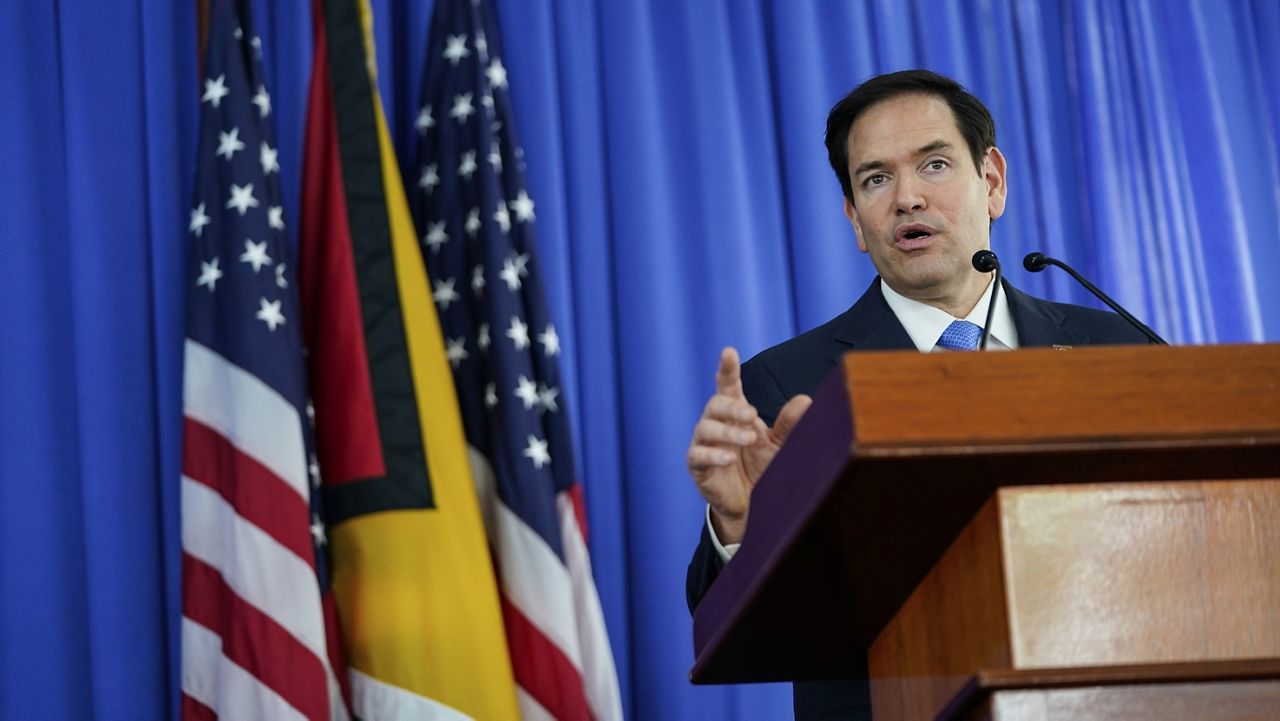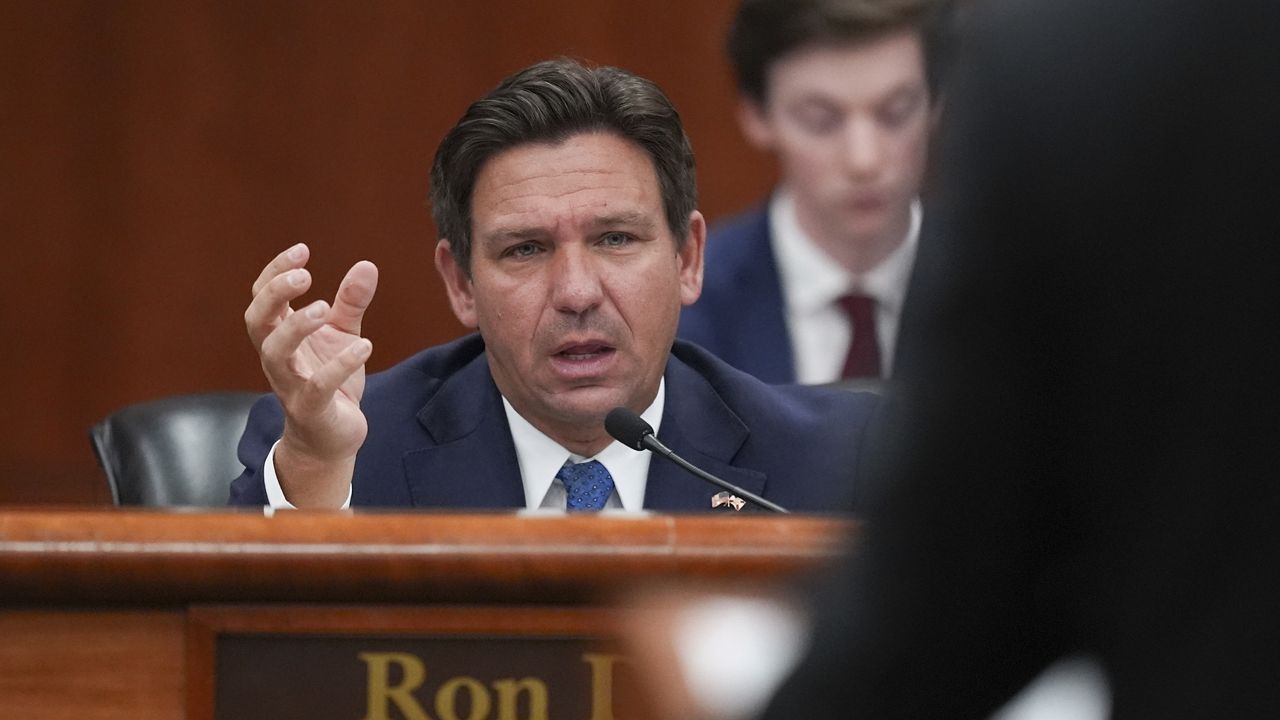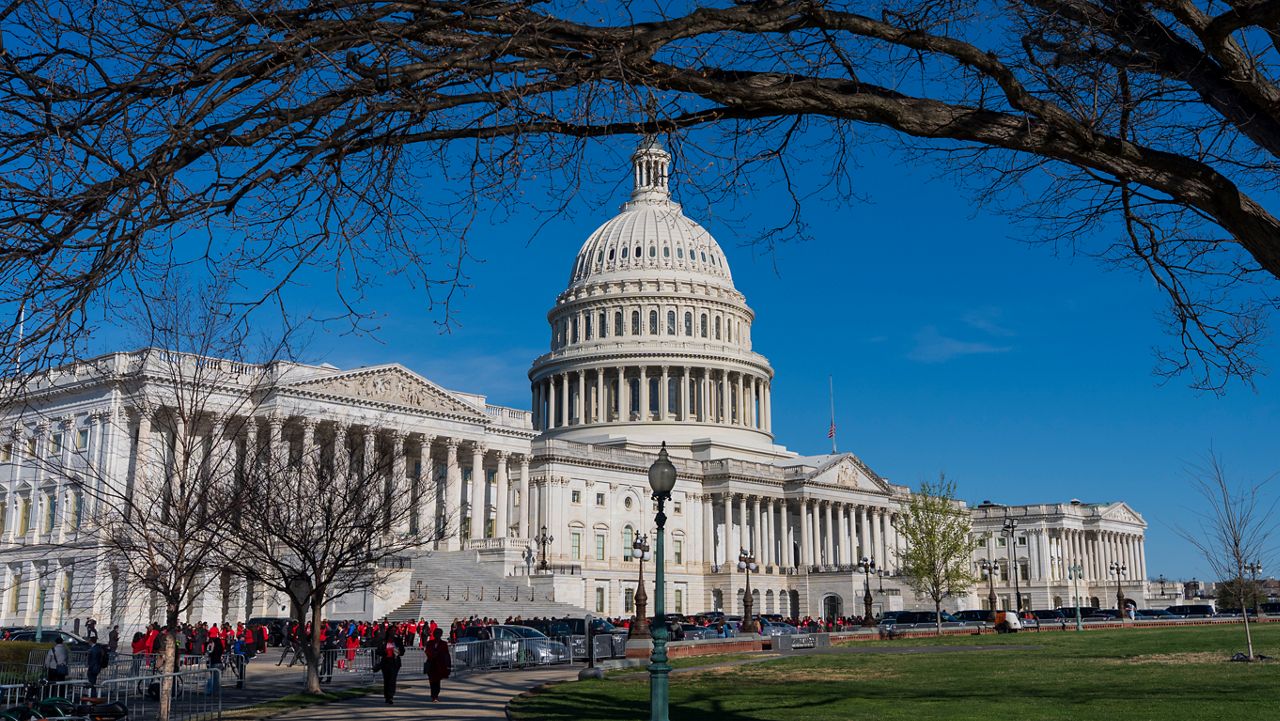Florida lawmakers prepare to consider removing in-state tuition for immigrants in the state, and Tulsi Gabbard is confirmed to the position of Director of National Intelligence under President Donald Trump.
Stories in this Episode of Political Connections
- State lawmakers roll out bill that would end special tuition rates for immigrant students
- Senate confirms Gabbard as Trump's director of national intelligence after Republicans fall in line
State lawmakers roll out bill that would end special tuition rates for immigrant students
It is now day two of special session C, and lawmakers are now considering six bills, including one dealing with tuition for migrants.
Currently, students in Florida pay different rates for tuition at public colleges and universities depending on whether they’re a resident of the state.
Since 2014, Florida has offered an in-state tuition discount to the state’s undocumented migrants.
Now, Wednesday in committee, lawmakers are debating whether that discount should even exist. The committee estimates that roughly 6,500 students in Florida are taking advantage of the program.
Ending the program would come to about $40.6 million in savings.
If the current version of the bill passes, Florida would end the migrant waiver in July.
Under the new proposal, undocumented migrants would be classified the same as out-of-state residents.
“We are going to be cracking down on the young people who were brought to the United States by their parents, tripling, perhaps quadrupling their tuition rates and pricing them out of college,” State Sen. Carlos Guillermo Smith said of the proposal.
Other lawmakers were more supportive of the proposal.
“This entire bill is about eliminating any type of incentive," State Sen. Joe Gruters said. "And you can go to the educational section where we eliminate in-state tuition. And, but overall, this makes it very clear that we’re cracking down on illegal immigration overall."
That’s just one of six bills that are up for consideration as part of this special session.
It was current Lt. Gov Jeanette Núñez who spearheaded the effort to get the tuition waiver back in 2014.
At the time, she was a member of the Florida House.
Senate confirms Gabbard as Trump's director of national intelligence after Republicans fall in line
The Senate on Wednesday confirmed Tulsi Gabbard as President Donald Trump's director of national intelligence after Republicans who had initially questioned her experience and judgment fell in line behind her nomination.
Gabbard was an unconventional pick to oversee and coordinate the country's 18 different intelligence agencies, given her past comments sympathetic to Russia, a meeting she held with now-deposed Syrian President Bashar Assad and her previous support for government leaker Edward Snowden.
Gabbard, a military veteran and former Democratic congresswoman from Hawaii, was confirmed by a 52-48 vote, with Democrats opposed in the sharply divided Senate where Republicans hold a slim majority. The only "no" vote from a Republican came from Sen. Mitch McConnell of Kentucky.
She is the latest high-ranking nominee to win Senate confirmation as the new administration works to reshape vast portions of the federal government, including the intelligence apparatus.
Staffers at the CIA and other intelligence agencies have received buyout offers, while lawmakers and security experts have raised concerns about Elon Musk and his Department of Government Efficiency accessing databases containing information about intelligence operations.
The Office of the Director of National Intelligence was created to address intelligence failures exposed by the Sept. 11, 2001 attacks. Republicans have increasingly criticized the office, saying it has grown too large and politicized. Trump himself has long viewed the nation’s intelligence services with suspicion.
U.S. defense chief suggests Ukraine should abandon hope of winning all territory back from Russia
U.S. Defense Secretary Pete Hegseth said Wednesday that NATO membership for Ukraine was unrealistic and in sweeping remarks suggested Kyiv should abandon hopes of winning all its territory back from Russia and instead prepare for a negotiated peace settlement to be backed up by international troops.
Hours later, President Donald Trump said he and Russian President Vladimir Putin had agreed to begin “negotiations” on ending the Ukraine war. In a social media post, the Republican disclosed a call between the two leaders and said they would “work together, very closely.” Ukrainian President Volodymyr Zelenskyy's office said Zelenskyy and Trump also had a phone conversation, which lasted about an hour.
Addressing allies eager to hear how much continued support Washington intends to provide to the Ukrainian government, Hegseth indicated that Trump is determined to get Europe to assume most of the financial and military responsibilities for the defense of Ukraine, including a possible peacekeeping force that would not include U.S. troops.
The defense secretary, making the first trip to NATO by a member of the new Trump administration, also said the force should not have Article 5 protections, which could require the U.S. or the 31 other nations of the NATO alliance to come to the aid of those forces if they end up in contact with Russian forces.
Hegseth’s stark message, and his insistence that Russia should keep some territory that Ukraine wants back, offered the closest look yet at how the administration might try to end the war.
The secretary's comments were also sure to dim Ukraine’s hopes of making itself whole again and to complicate talks later this week between Zelenskyy and U.S. Vice President JD Vance and other senior American officials at a major security conference in Munich.
“The United States does not believe that NATO membership for Ukraine is a realistic outcome of a negotiated settlement,” Hegseth said, as Kyiv’s backers gathered at NATO headquarters for a meeting to drum up more arms and ammunition for the war, which will soon enter its fourth year.
All 32 allies must agree for a country to join NATO, meaning that every member has a veto.











